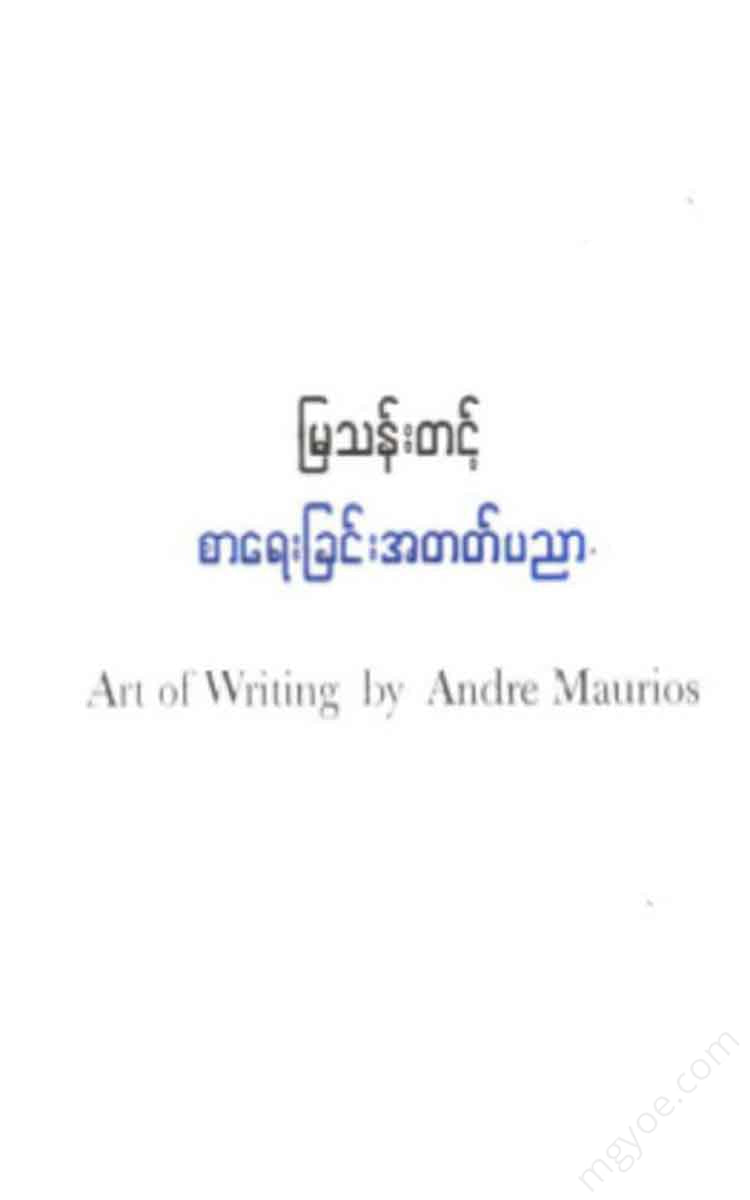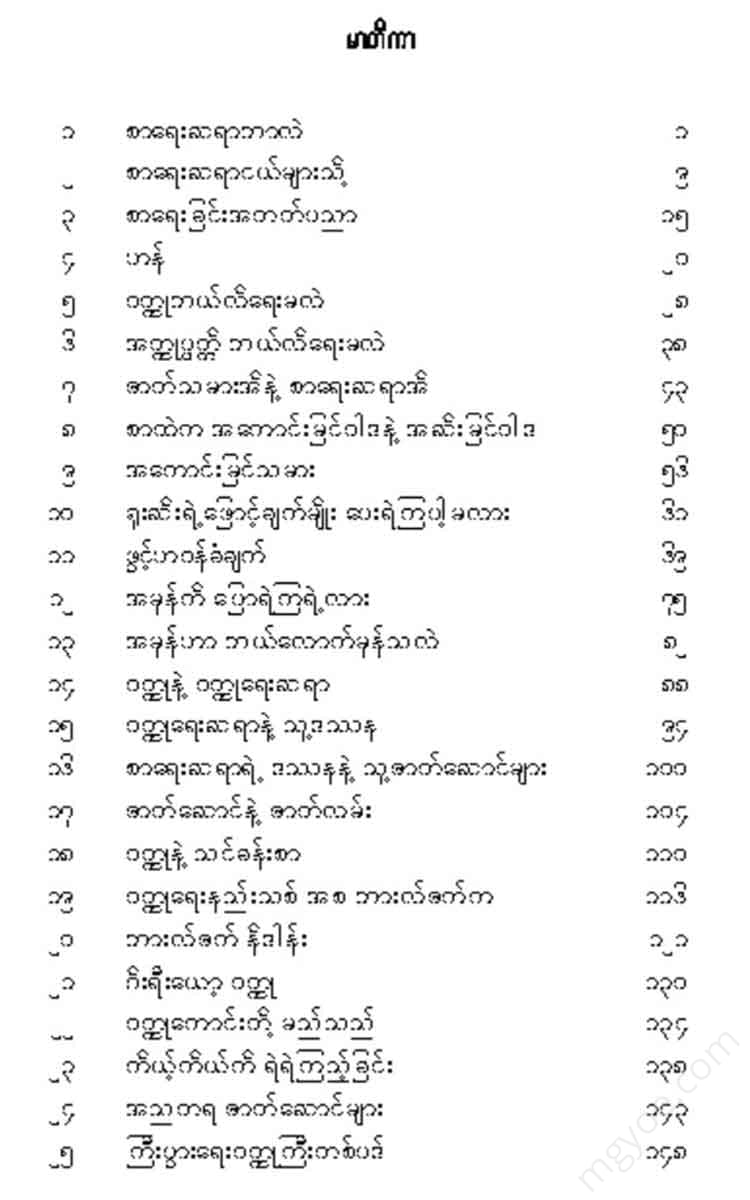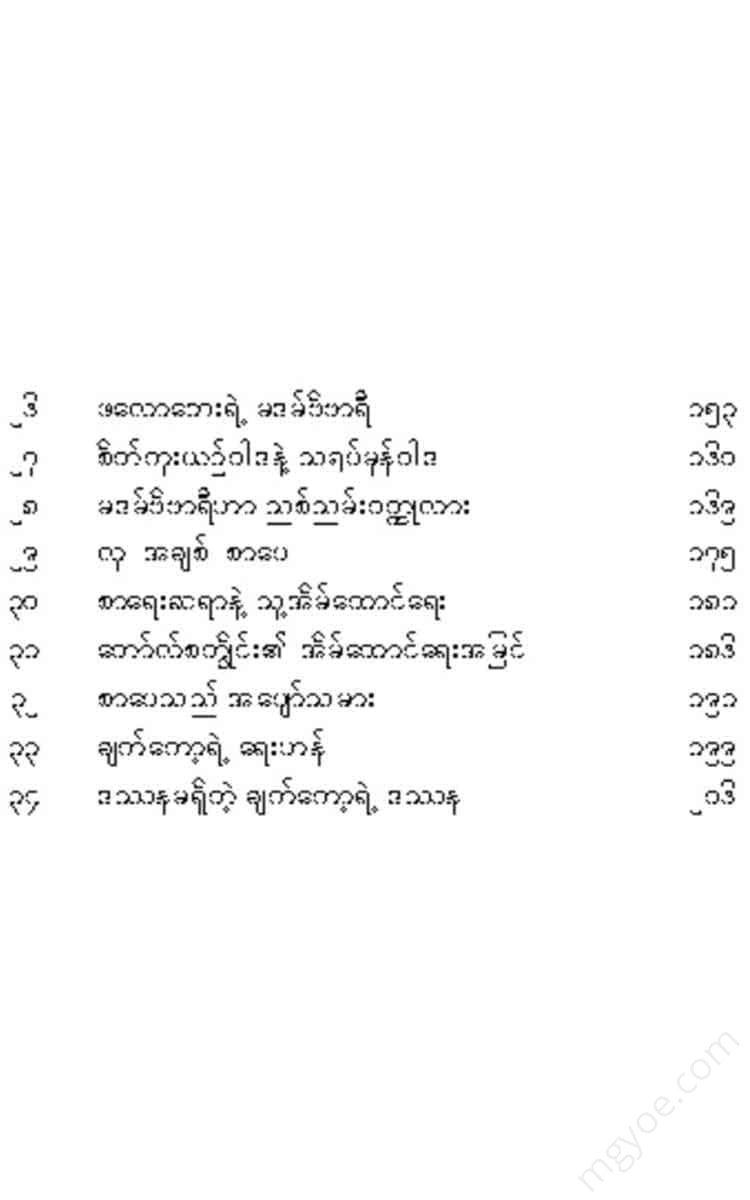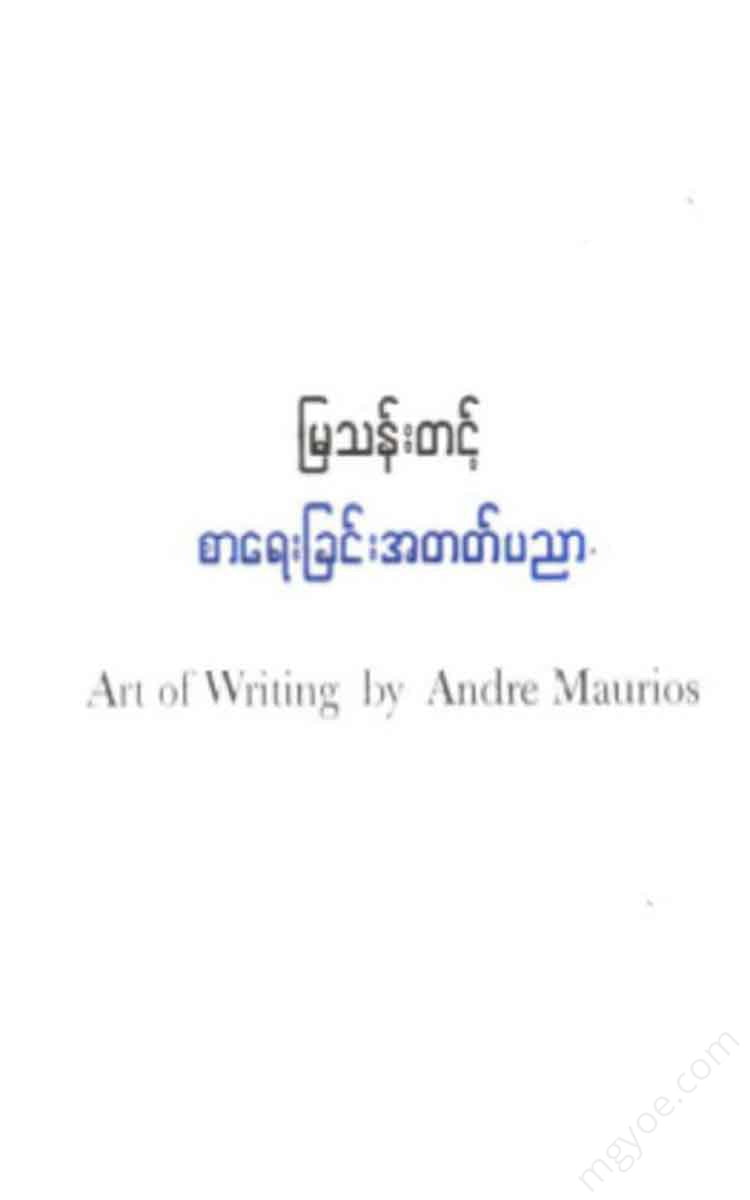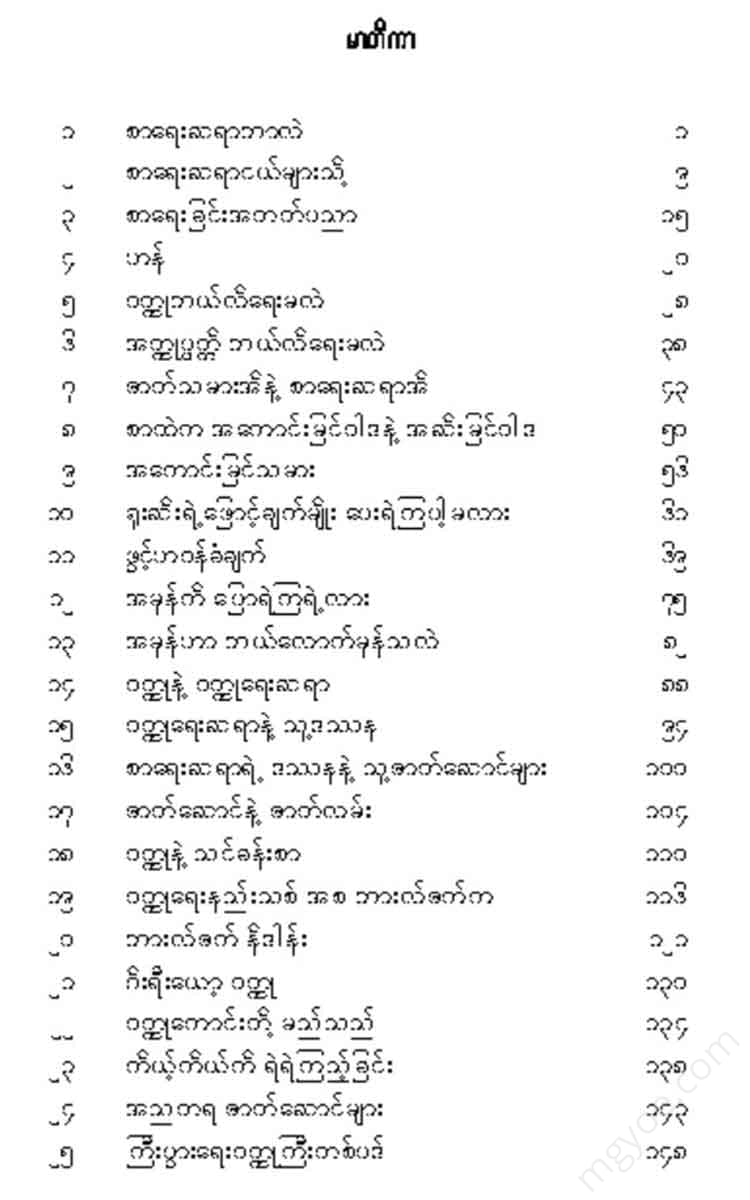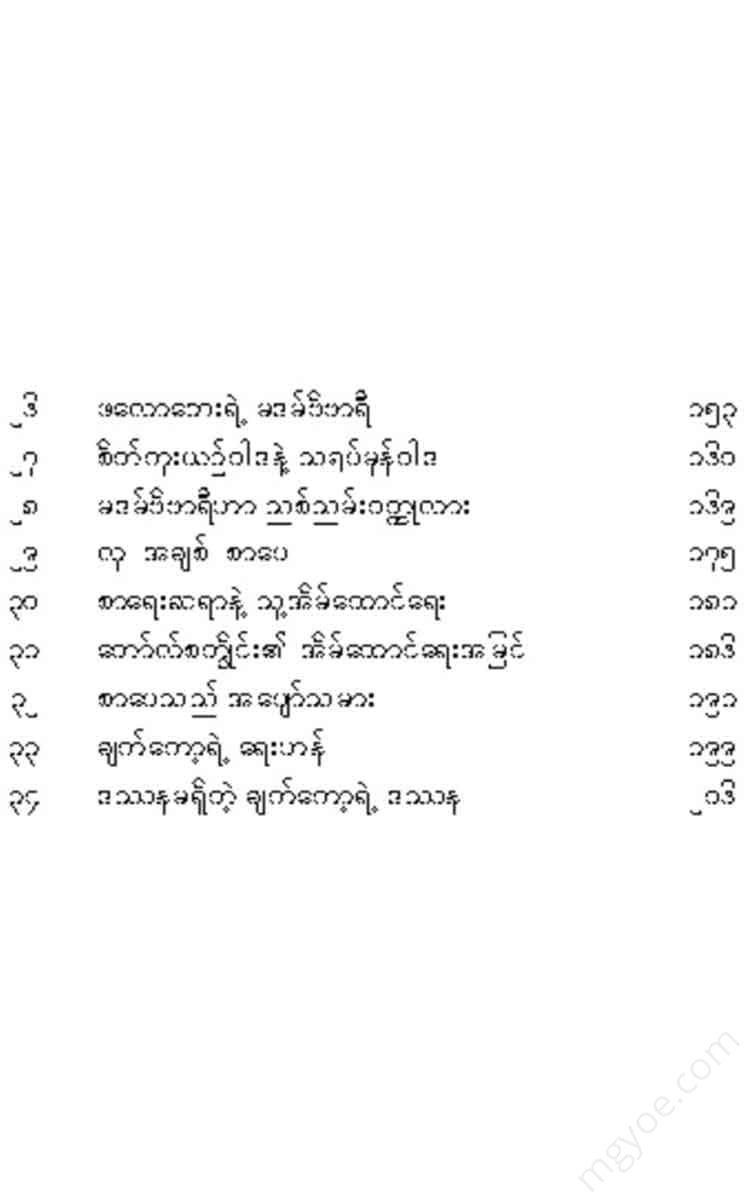Other Websites
Mya Than Tint - Writing Skills
Mya Than Tint - Writing Skills
Couldn't load pickup availability
What is a writer?
The beginning of a writer's life is the desire to write. Whether they are children or adults, when they see people or things, they feel emotions. Or they have ideas. They want to express these feelings and ideas in words. When he was young, writer Marcel Machit wanted to reveal the beauty that was hidden in something. When he was young, he said that when he saw a beautiful thing hidden by something else, he wanted to remove that hidden thing. He called this hidden beauty “imprisoned beauty.” He did not know at the time that he wanted to free a truth that had been imprisoned. How could he have understood what truth was? How could he have understood that there was truth in the orchards under the bushes, in the bushes, in the bushes, in the bushes? The writer Balzac portrayed himself as a young boy who wanted to do a lot when he was young. Great poets and writers such as Victor Hugo, Byron, Musset, and Barley wrote poems when they were young. Sometimes writing | work is a process that bears fruit later. For example, Rousseau. But until he started writing at an older age, he wrote in secret and became a writer later. .
Why is it that some people have the desire to write and others don't? Although it is not a general rule, there is one thing that can be said. That is, the desire to express one's feelings in writing is often a result of the discomfort of life, of the inner conflict that one cannot resolve on their own, and people who are used to solving it in practice do not often think of the need to step out of reality and express their feelings in writing. That is why I think the best writers in the world are those who are in poor health. (Alain Poe, Marple Froese, Florentine, Chekhov, etc.) That is why many writers, I think, are often those who have been affected by life's traumas in their early years and have encountered difficulties and obstacles in their further development. Balzac, Hugo, Kipling and Stendhal had unhappy childhoods and later became writers who were not good at writing at home. Some of their inner conflicts were religious or social. (Voltaire, Antoine de Saint-Germain and Tolstoy, etc.) Others were very sensitive and worried about everything and had conflicts within themselves, and they wrote to express these conflicts. (Marime, etc.) By saying this, I do not mean that it is difficult to become a great writer. However, if you already have the talent to write, writing is a way to express your inner conflict. I think it's a way to resolve conflict.
So some people might object. There are a lot of writers in the world who are comfortable and happy throughout their lives. They might say that they have a healthy balance of mind. That's true. But this balance of mind is achieved through struggle. I have never seen a single example of someone achieving this balance of mind without struggle.
Victor Hugo was a surprisingly healthy old man in 1875, and his reputation as a writer was already quite high. So there is no reason to complain that his life was not going well at this time. But we should not forget that he had suffered hardships in his childhood, that he had failed in love, that he had been troubled by death and the storms of politics, and that he had been troubled by these.
During the French Restoration, the writer Chateaubriand had been an ambassador. He had been a minister. So he no longer had to compose melancholy poems like he once did. But Chateaubriand realized his literary talent and knew how to feed it, so he continued to nurture the conflicts he had in his past and sought new ones.
Another is the poet Paul Valéry. As far as I know, Valéry was a very strong and cheerful person. But his wrinkles and wrinkled face testify to the hardships he had to face in his childhood. The only writers I have ever met who are satisfied with themselves or with the world around them are the bad ones. (I am not saying that this is bad.) By saying this, I do not mean that if you want to write well, you have to be a pessimist. But, as the writer Alain says, optimism in an artist is something that can only be achieved through a fierce struggle.
So, the first requirement for becoming a writer is the desire to write and the effort to become a writer. The second is that you must have an audience. Why does a writer need an audience? If the writer's purpose is to express his feelings, then he expresses them and that's it. Isn't that enough? Does he still need witnesses to hear this expression? If we were to answer this question, we would have to say "generally." I say "generally" for no other reason. Because there are writers who write their own personal histories.
For example, Saint Simon and Saint Muriel were not the least bit concerned with the public's praise. They wrote for themselves and for future generations, whom they had never seen. But such cases are very rare.
Every writer wants to have an audience to read his/her work, no matter how small. This is natural. If a writer writes with the intention of revealing the truth about himself/herself, of expressing himself/herself to the world, what is the point of writing if his/her work does not reach the people he/she intended it to reach? If he/ she has an audience that understands him/her, loves him/her, and respects him/her, then the writer is satisfied. And his/her conflicts are similar to the conflicts within his/her readers, and the readers feel relieved because they read his/her work. If he/she feels happy, then he/she feels even more happy because he/she has helped the readers.
A writer who writes with dignity and respect, in keeping with his profession, does not desire power.
I don't want fame and power. Sometimes it happens that you deserve it and get these opportunities as you go along. But many great writers didn't get these things during their lifetime. The great poet Malamay was a poet who was loved by a small minority. He was not known among the wider reading public.
Startled once joked, “I would have had a readership in 1860.” By 1960, there was even more. But there was not much of an audience when he was famous. Bolshoi, Balzac, and Dickens were all very popular when they were famous. Success is not more beneficial to a writer. It is not more harmful. Success is necessary because it gives you more independence and freedom. But success should not be made famous by scandals, by vulgar methods, by big advertising. The public’s interest in some literary awards is not very beneficial.
Especially for the winners, it is not very beneficial. Sometimes, these awards can suddenly ruin their reputation and even their prestige. Even before they receive the awards, they have already shown that they are worthy of their honor. They have the ability to respond to the expectations of the audience that are placed on them. But when their reputation is ruined because they have high expectations of success, their loss is even greater and more painful.
A fairly famous writer often finds extra work while making a living as a writer. For example, writing articles for newspapers, giving lectures, speaking on radio and television, etc. How does a writer feel about such work? Especially when you are still young, you might think that if you refuse such an opportunity, you are too arrogant. Or you might think that you are too shy to speak out. Some writers are not very fond of this kind of public relations. But many writers are fond of this kind of public work. So why should you refuse such work if you can express your opinion in front of a large audience and influence them? I think you should not. The poet Valery never considered such work that was offered to him. If he was asked to write about a topic, he would gladly do it. Some of his best poems were written just because they were asked. For example, the introduction to the article "Monday Paper" is a very good political article.
Many of Victor Hugo's best poems on national and international affairs are also poems written under similar circumstances. But the writer does not abandon his noble profession, which is writing, and pursues such side jobs. Isn't his job to write about what he feels? Especially in France, writers are often civil servants. Or they are often members of opposition political groups. So we need to preserve as much personal freedom as possible for our writers. In this way, we are more likely to be involved in public affairs than writers in other countries.
Should a writer focus on material success? Should he study writing for this purpose? In other words, should he consider writing as a profession? It is true that many writers write to support themselves and their families . It is true that a few writers have become rich through writing. For example, Hugo, Verne Shaw, and American writers, and French playwrights have become rich.
Today, it is easier to get rich than ever before. Readers are growing, international publishing is expanding, and the number of literate people is growing, and there are more opportunities to get rich than ever before . But despite their success, Carl Zeiss and Dumas were not rich, and often needed money. That is why they wrote so much. Writing a lot is not a crime. Great writers produce good writing no matter how much they write. Balzac wrote Cousin Betty and Cousin Pun because he needed money. But just because he wrote for money does not mean that these books are bad. The English often refer to this kind of writing as "making the pot boil." That is why such writing is often called "making the pot boil."
But why can't the fire that cooks rice also cook the soul? But for a writer, power, fame, and money are secondary. Even if he doesn't express it verbally, a person without a deep philosophy can never be a great writer. This is true. It is true for people of low status.
Writer George Sinclair's life is like ours : a life of heartbreak, a life of twists and turns, a life of ups and downs. But in his novel "Consul" he has managed to paint a detailed picture of the female mind that every woman can imitate and every man can understand. A great writer is a person who respects values. His main task is to raise life to the level of dignity of thought . In doing so, he gives thought a form. If he refuses to do this work, the writer is only a skilled magician and a player with words. Therefore, his fellow writers will respect him, but no one will be interested in his books. But if the writer has fulfilled the above task, he will be happy to write. If he does this, the writer will be honored in the world he reflects and will produce an echo of his time. By writing a systematic and correct picture of people, he will help to shape the world.
